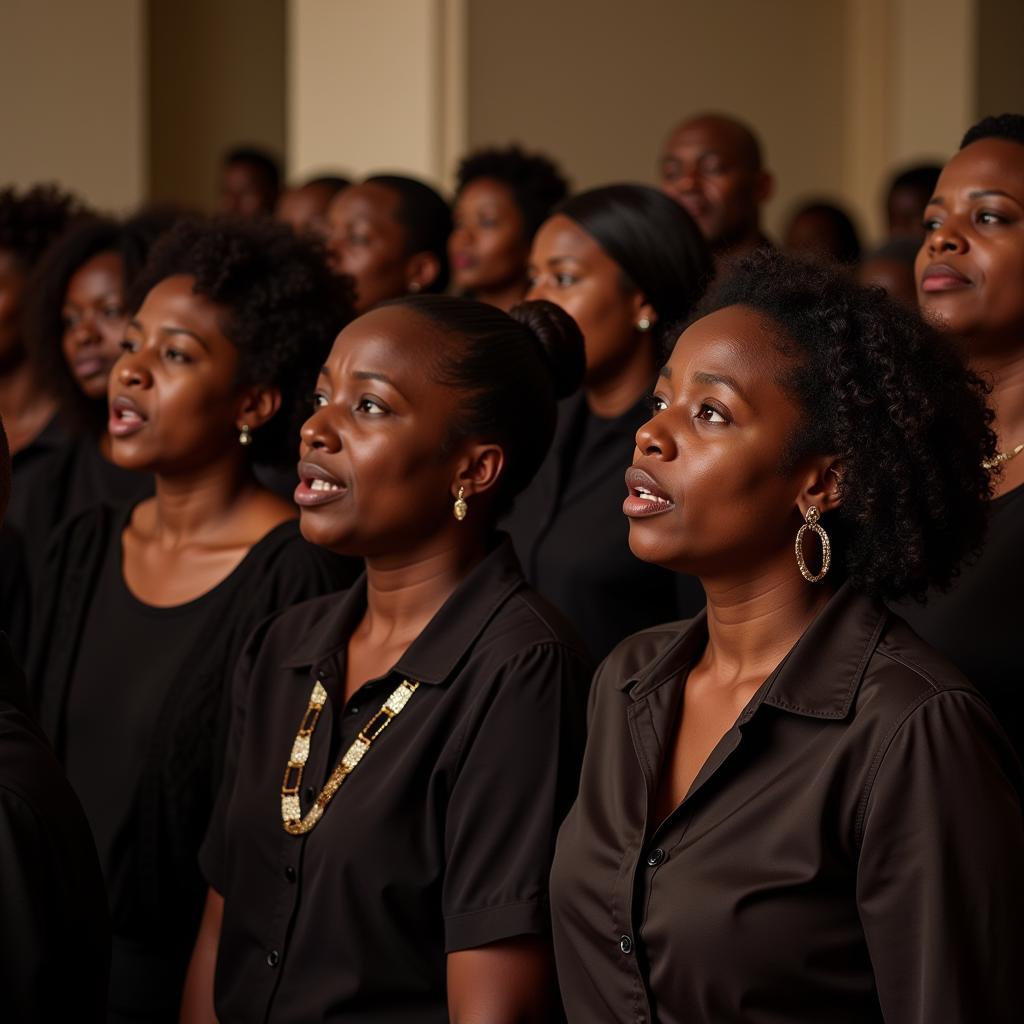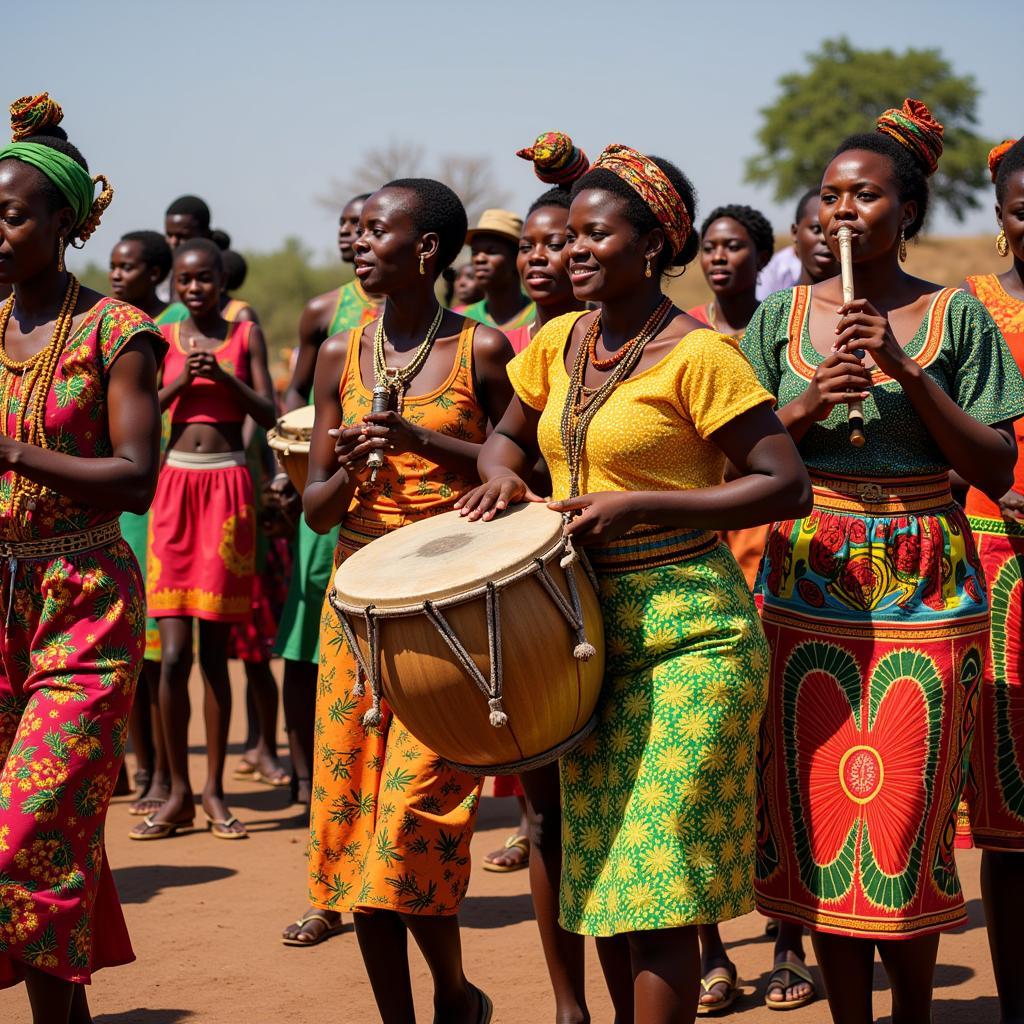The African Culling Song: Unveiling the Mystery
The term “African Culling Song” might pique your curiosity, conjuring up images of ancient rituals or perhaps something more sinister. However, a simple internet search yields surprisingly few results. This lack of information suggests that “African culling song” isn’t a widely recognized phrase or concept.
Is “African Culling Song” a Misnomer?
It’s important to dissect the individual words. “Culling” usually refers to the selective reduction of a population, often used in the context of animal populations. “Song” implies a musical or rhythmic vocalization, often with a specific purpose or meaning.
Exploring Potential Interpretations
Perhaps “African culling song” is a misinterpretation, a phrase mistakenly used to describe something else entirely. Let’s consider some possibilities:
1. Hunting Songs:
 African Hunters Singing
African Hunters Singing
Across Africa, hunting is often accompanied by songs and rituals. These songs might:
- Invoke spirits: Seeking favor or guidance for a successful hunt.
- Mimic animal sounds: Used as a hunting technique to attract prey.
- Celebrate a successful hunt: Expressing gratitude and joy.
While these songs are connected to hunting, they don’t necessarily involve culling in the strict sense of population control.
2. Songs of Lament:
 African Women Mourning
African Women Mourning
In many African cultures, songs play a significant role in mourning and funeral rites. These songs could be misinterpreted as “culling songs” due to their association with death. However, their purpose is to honor the deceased, not to celebrate or encourage death.
3. Animal Communication:
 African Wildlife Communicating
African Wildlife Communicating
Some animal species in Africa, like elephants, are known to communicate through infrasound, sounds too low for humans to hear. These sounds can be used for various purposes, including:
- Warning calls: Alerting the herd to danger.
- Mating rituals: Attracting mates over long distances.
- Social bonding: Maintaining group cohesion.
While these vocalizations are crucial for animal survival and could be interpreted as relating to population control, they are natural behaviors, not deliberate culling efforts.
The Importance of Cultural Context
It’s crucial to remember that attributing specific meanings to phrases without understanding the cultural context can lead to misinterpretations. The lack of information about “African culling songs” suggests that it might be a phrase born out of a lack of understanding or a misconstrued observation.
When researching or discussing cultural practices, especially from regions outside our own, it’s essential to approach the topic with sensitivity, respect, and a willingness to learn from credible sources.


